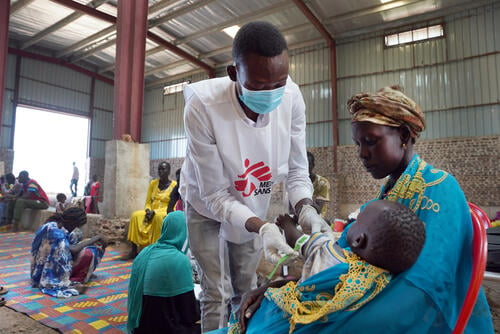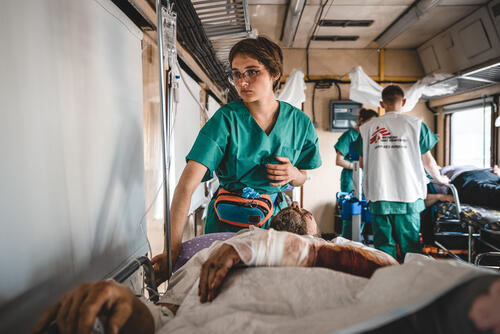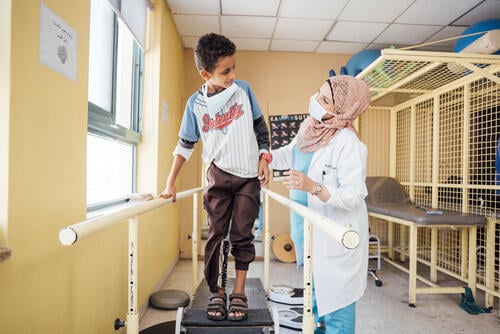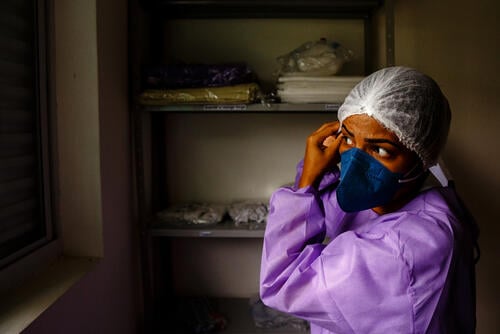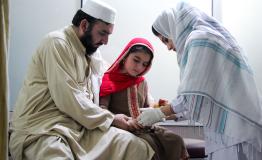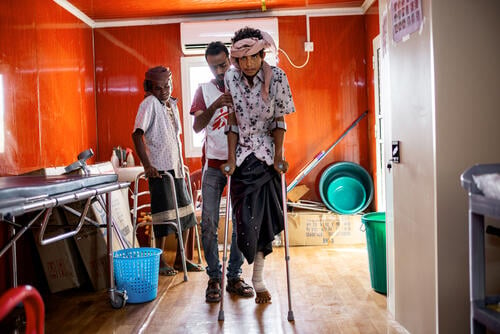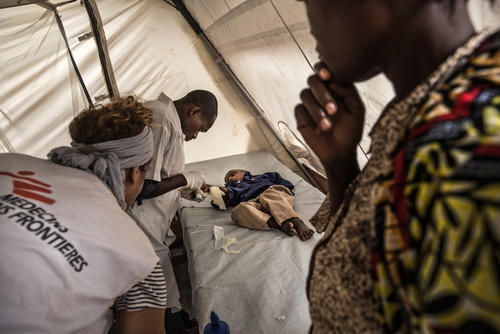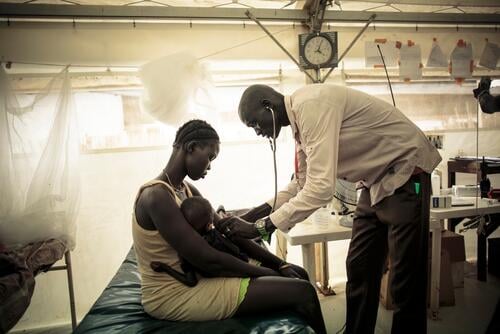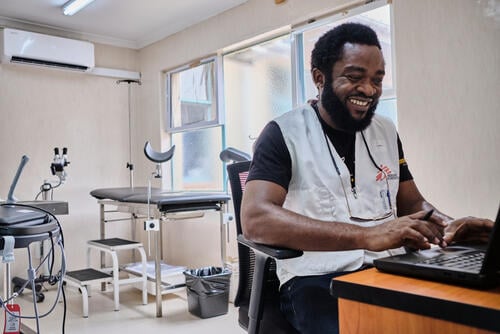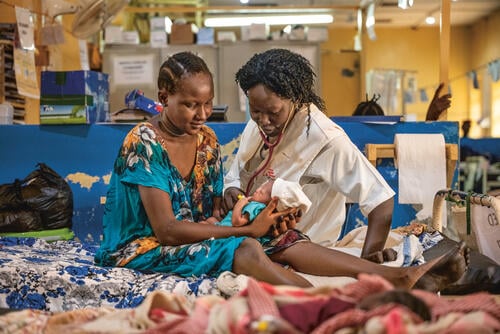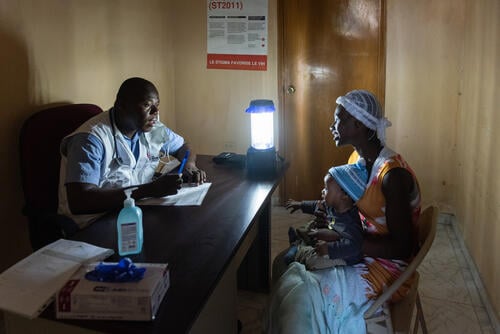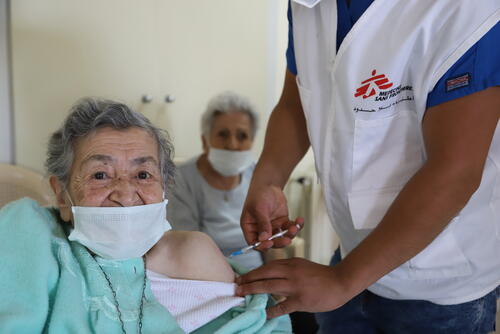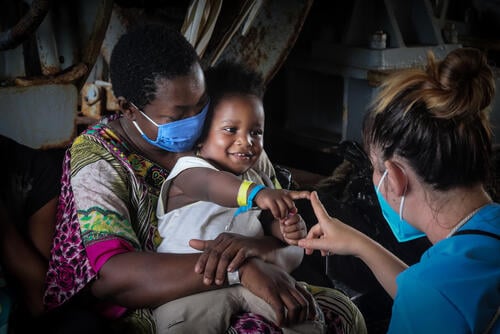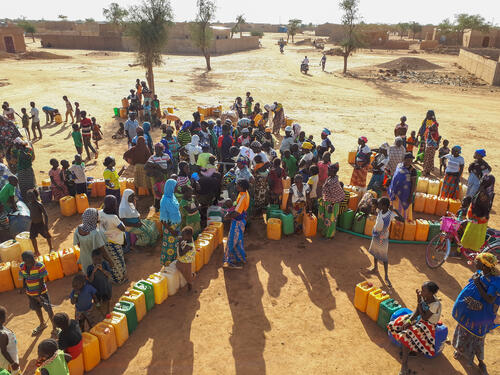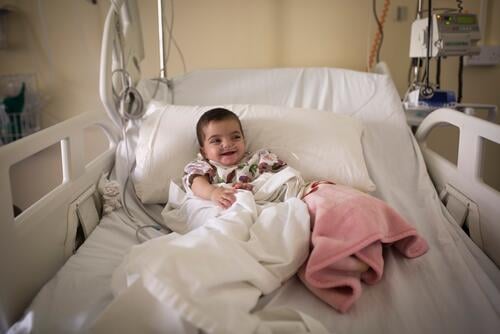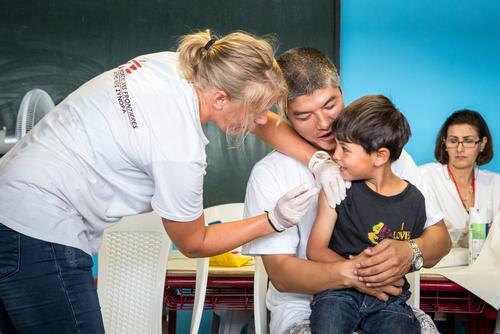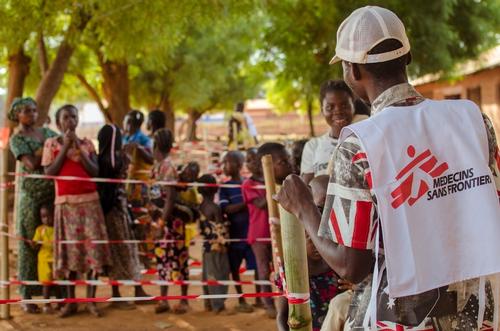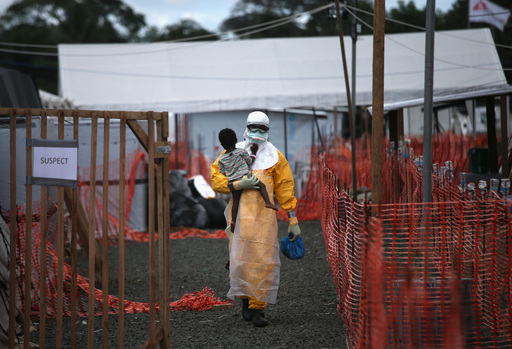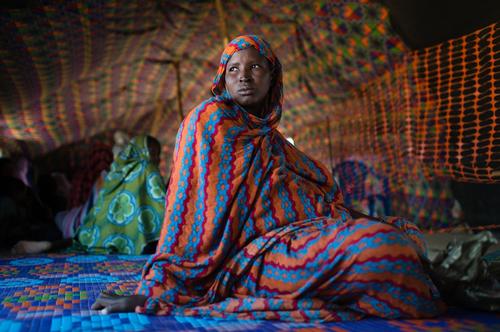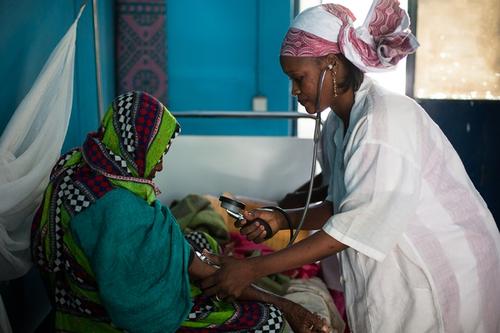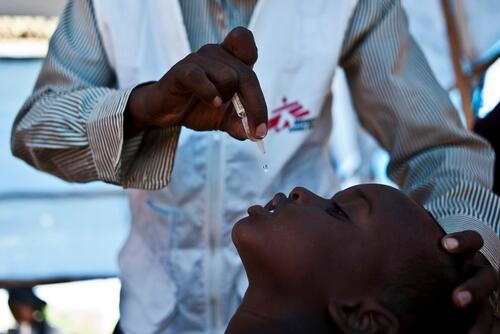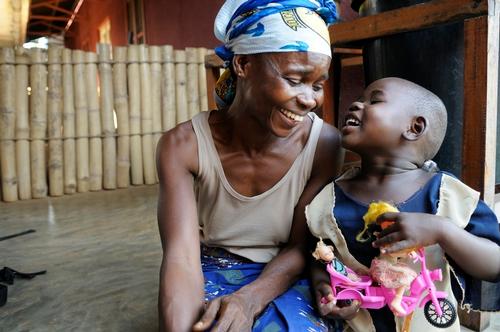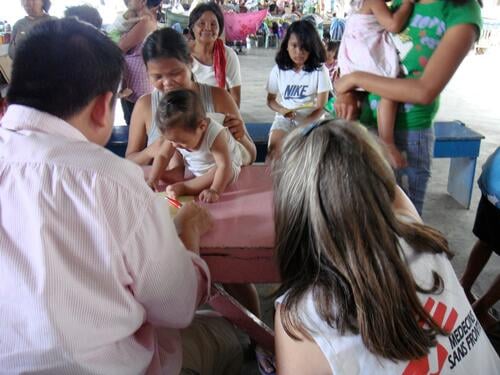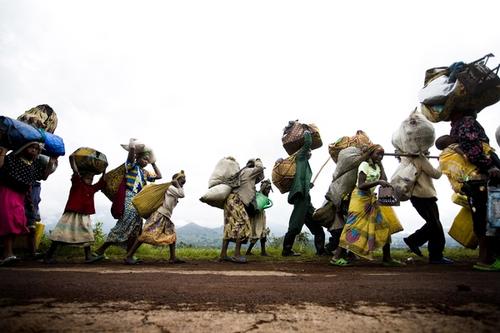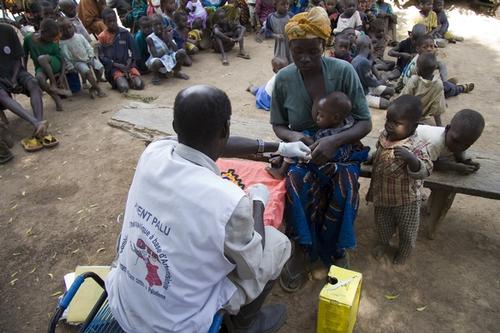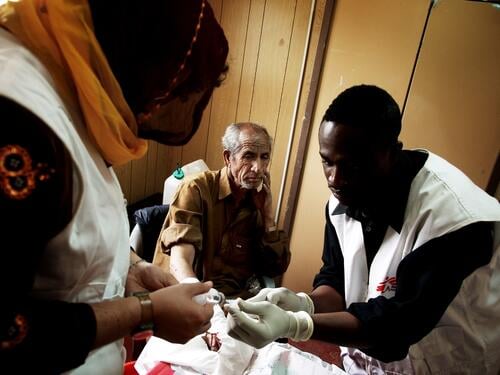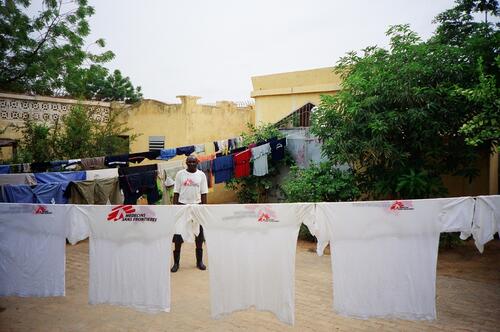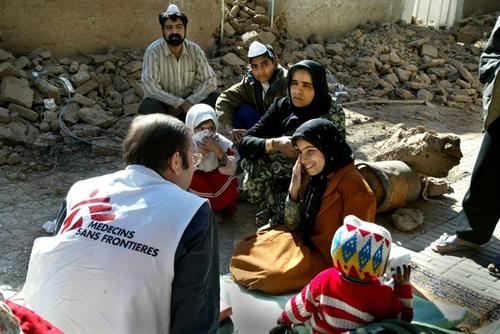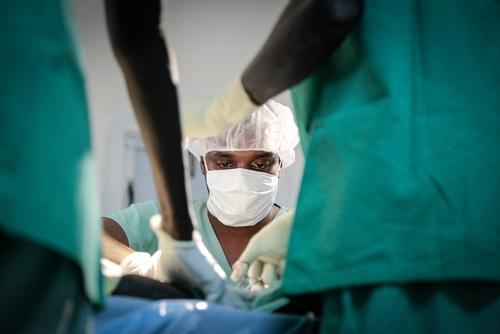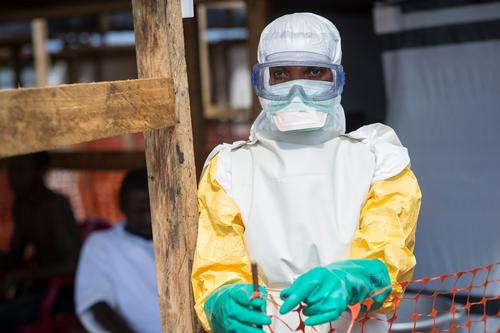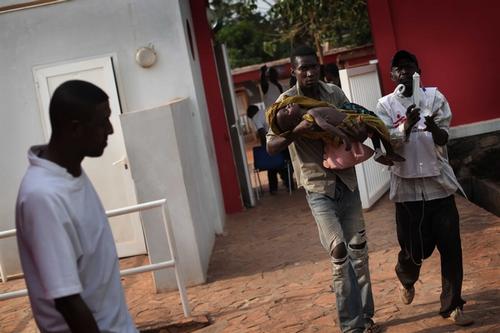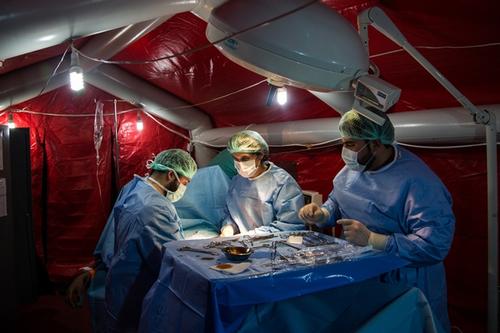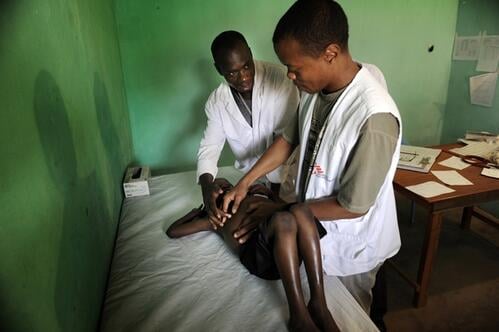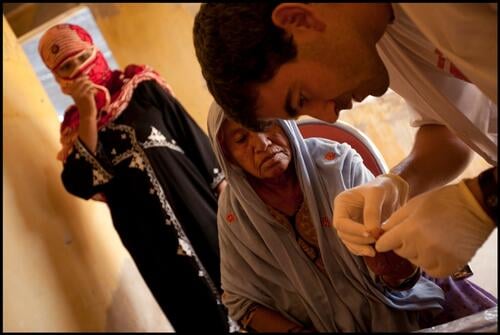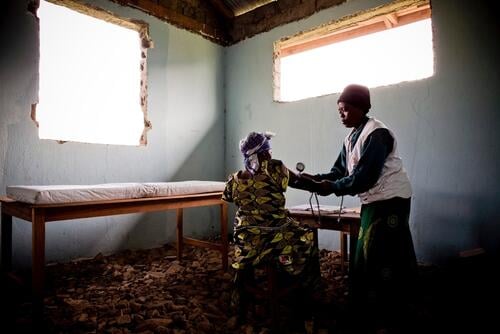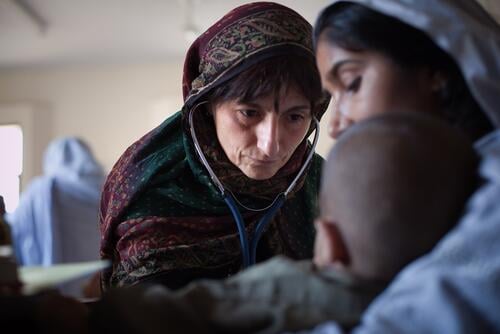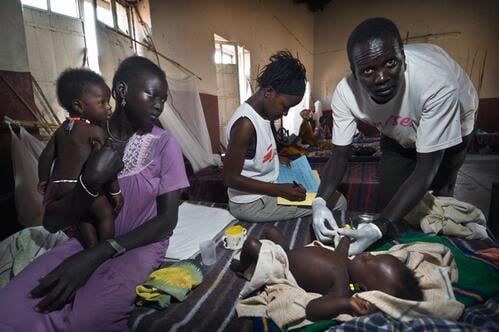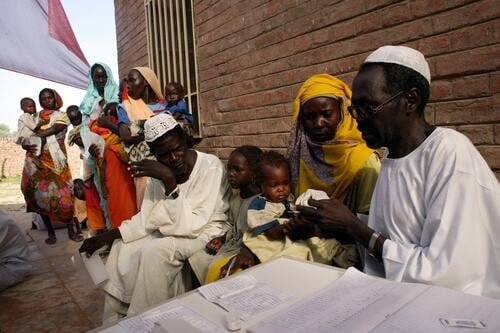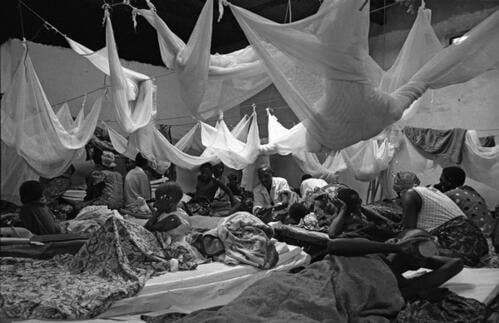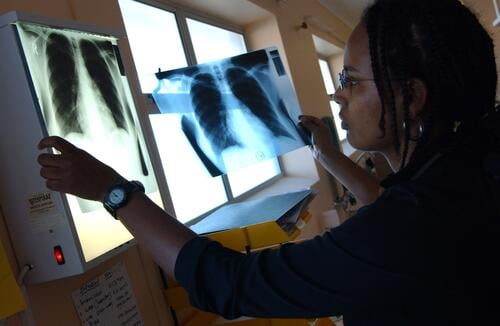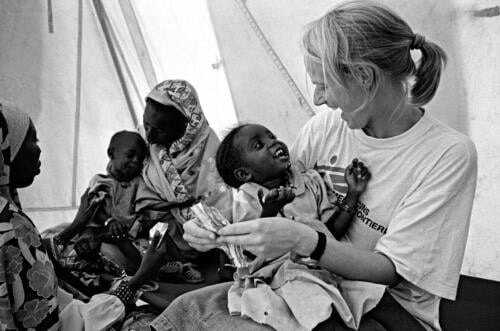Each year our audited combined Financial Statements (International Financial Report/IFR) provide a global overview of MSF’s work. Our International Activity Report (IAR) gives details on our activities and expenditure in each country and reflects on the major challenges we faced over the year. Access our International Financial Reports and our International Activity Reports, and learn more about our funding policy, where our money comes from, and how your donations are used.
Where our funding comes from
In 2023, more than 7.3 million individual donors and private institutions (private companies and foundations) provided 98 per cent of the €2.37 billion raised.
Our funding relies largely on individuals donating small amounts. This helps to ensure our operational independence and flexibility to respond at a moment’s notice to the most urgent crises, including those which are underreported or neglected.
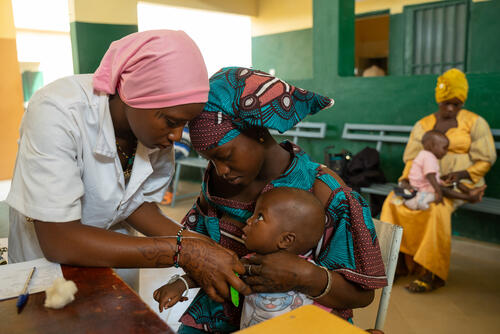
Nurse Mariam Dembele takes a child's vital signs in the paediatric ward of the community health centre. Mali, 16 April 2024.
Our funding policy
Internationally, government funding represents only around one per cent of the total funds raised. Since 2016, we’ve refused to take funds from the European Union, its Member States and Norway, in opposition to their damaging deterrence policies on migration and their intensifying attempts to push people away from European shores.
Moreover, we don’t accept contributions from companies and industries whose core activities may be in direct conflict with, or limit our ability to provide, medical humanitarian work.
Hence, we don't accept money from:
- pharmaceutical and biotechnology companies;
- extraction industries (such as oil, natural gas, gold, or diamonds);
- tobacco companies; and
- arms manufacturers.
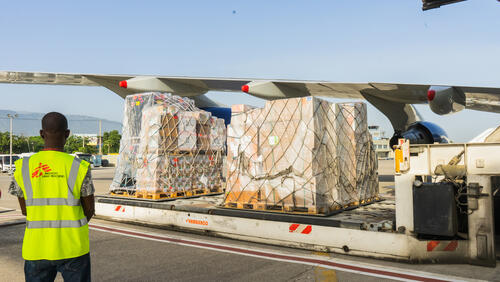
MSF air shipment of medical supplies arrived after Port-au-Prince international airport reopened, these shipments meet the urgent need to resupply MSF's programs. Port-au-Prince, Haiti, 13 June 2024.
How your donations are spent
Your donations pay for millions of consultations, surgeries, treatments and vaccinations every year.
We are a non-profit organisation and 80% of our financial resources are allocated to fulfilling our social mission: 64% to our humanitarian programmes, 13% to support our projects and programmes, and 3% to awareness-raising, the Access Campaign, and the Drugs for Neglected Diseases initiative (DNDi). The rest is spent on general management and fundraising costs. We also maintain reserves that allow us to respond immediately to a crisis without having to wait for a fundraising appeal. The use of MSF funds is tightly controlled, and the audited financial reports are publicly available.
*figures from 2023 International Financial Report
International Financial Report
Every year we publish our audited combined Financial Statements. These combined accounts are a means of transparency and accountability, providing a global overview of MSF’s work.
The International Financial report represents an aggregation of the Financial Statements of the 24 sections, 18 branch offices, numerous satellite organisations, and MSF International.
International Activity Report
Each year, the International Activity Report provides a recap of our field work. The report gives details on our activities in each country, provides global financial and operational information, and reflects on the major challenges we faced over the year.
16,459,000
16,459,
3,295,700
3,295,7
1,368,700
1,368,7
